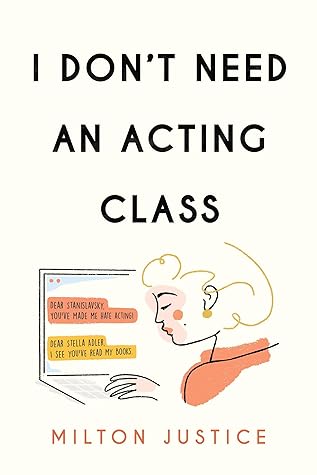Kindle Notes & Highlights
The director David Fincher quoted some wisdom his father passed on to him: “Learn your craft—it will never stop you from being a genius.”
Build the play slowly as your belief mechanism takes hold. Stella gave us a great note: “I can believe this much today.” It’s not possible to believe everything about the character immediately. There are way too many facts. But what you can do is believe a little bit and then add to that. Fight the pressure to come up with a performance right away. When you build slowly and take on only what you can believe, it gives you a road in to a more creative, truthful performance.
It’s not the words— it’s the experience of the words.
our inability to connect leaves our work sterile. That and the fear of being emotionally exposed. Great actors know they have to expose everything.
“When you lie on stage it should hurt”
You made an innocent actor mistake. You read the script and said, “I relate to him. I’ve been through a lot of the same things.” The problem with this is you are misled into thinking it’s all you need. I know you don’t really think “that’s enough,” but somehow the idea “I relate to this guy” cuts off much of our actor work. If the character were a militant lesbian ex-nun, you would know you have nothing in common with her and you would have done massive amounts of work in order to play the part. You are in dangerous territory, because you do actually have a sense of what your character has
...more
Facts are death to the actor until they are fed through the imagination and become the experience of the facts. —STELLA ADLER
Working out loud rather than writing your choices down (or merely thinking about them) begins to open up the actor’s instrument to the experience of every choice and every line of text. There’s an almost physiological response when the actor is totally connected, when the understanding penetrates not only the mind, but the bones and muscles and skin.
When you consider how much of acting is based on images and ideas, the ability to visualize is one of the most important abilities for an actor to develop. And it’s not just that you can see it—it must affect you. It must give you something that feeds your acting. You must live off of it. Maybe it’s the color. Maybe it’s the delicacy. Maybe it’s the strength. Shop … shop … shop until you find what ignites you and brings you to life.
This is a life note for your acting: You want all of your actor choices to bring you to life. And a great road in to accomplishing this is to be specific. The more specific, the bigger the payoff. “It’s a beautiful sky” is fine, but you’re losing the joy of actor work. The more you dig, the more alive it makes you. The specificity in describing the puffy white cloud, the ribbon of fire-laced sunlight piercing through it, the rich dark blue background … is all more alive.
Stella said that Brando would go to the set every day an hour before anyone else. He spent time in the place, because he knew his relationship with “the place” would give him an ownership of the part.
With the big writers the ideas are big. At a lecture I attended years ago, Arthur Miller described the difference between big writers and little ones. “What big writers have in common is a fierce moral sensibility which is unquenchable and they are all burning with some anger at the way the world is. The little writers on the other hand have made peace with it. The bigger ones can’t make peace.”
Listen to me very carefully, and try and listen not with your ears, because our ears are going to hear words. Listen the way an actor listens. He listens with his blood and when his blood is involved in listening, he hears … otherwise he only thinks he hears. We have lost the habit of listening like actors. Listen! Listen! With your ears, with your eyes, with your blood. Nobody listens on the stage anymore at all.


